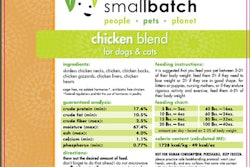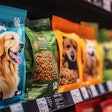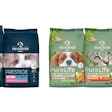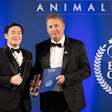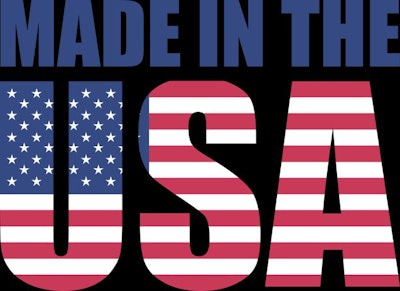
“Made in the USA” claims on pet food packaging can draw consumers’ attention, Don Tomala, managing partner of Chicago-based Matrix Partners, told Petfood Industry in March. His company had recently won three 2017 Graphic Design USA American Package Design Awards for their pet food packaging designs.
Specifically, “made in the USA” claims on pet food packages can help make an impression within the critical first three seconds of being seen, he said.
“When shopping the pet food aisle, customers scan for graphic cues such as grain free icons and ‘made in USA’ flags when they encounter an unfamiliar brand,” Tomala said. “If they don’t quickly see something relevant to them, they will keep on walking.”
Legal issues with “Made in the USA” pet foods
However, some US consumers may have certain expectations when they see Old Glory waving on their pet food’s packaging, and will take action if their expectations aren't met. In August 2016, one dog food buyer led the filing of a class action lawsuit against WellPet over the “Made in the USA” claims on their pet food.
The plaintiff, Dale Sabo, argued that WellPet’s ingredients included vitamin C, or ascorbic acid, but the chemical hadn’t been produced commercially in the US since 2009. Thus, the ascorbic acid must have come from abroad.
The Federal Trade Commission mandates that for a company to claim a pet food is made in the USA it must contain “all or virtually all” ingredients that originated in the country. Therefore, Sabo reasoned, the WellPet dog food he purchased couldn’t be marketed as made in the USA because the vitamin C was from another country.
However, since ascorbic acid is no longer manufactured in the US, the Federal Trade Commission may have allowed the WellPet pet food to be labeled as made in the USA, argued WellPet’s lawyers.
That class action lawsuit against WellPet was dismissed by a federal judge in Chicago, Illinois, USA. The judge stated that Sabo hadn’t proven that he paid significantly more for the WellPet products than he would have if they weren’t labeled as made in the USA. Nor did he state that he wouldn’t have purchased them had Sabo known the vitamin C was from abroad.
The judge ruled that since Sabo had failed to “plead and prove actual damages,” his claim of damages was unsupported.





